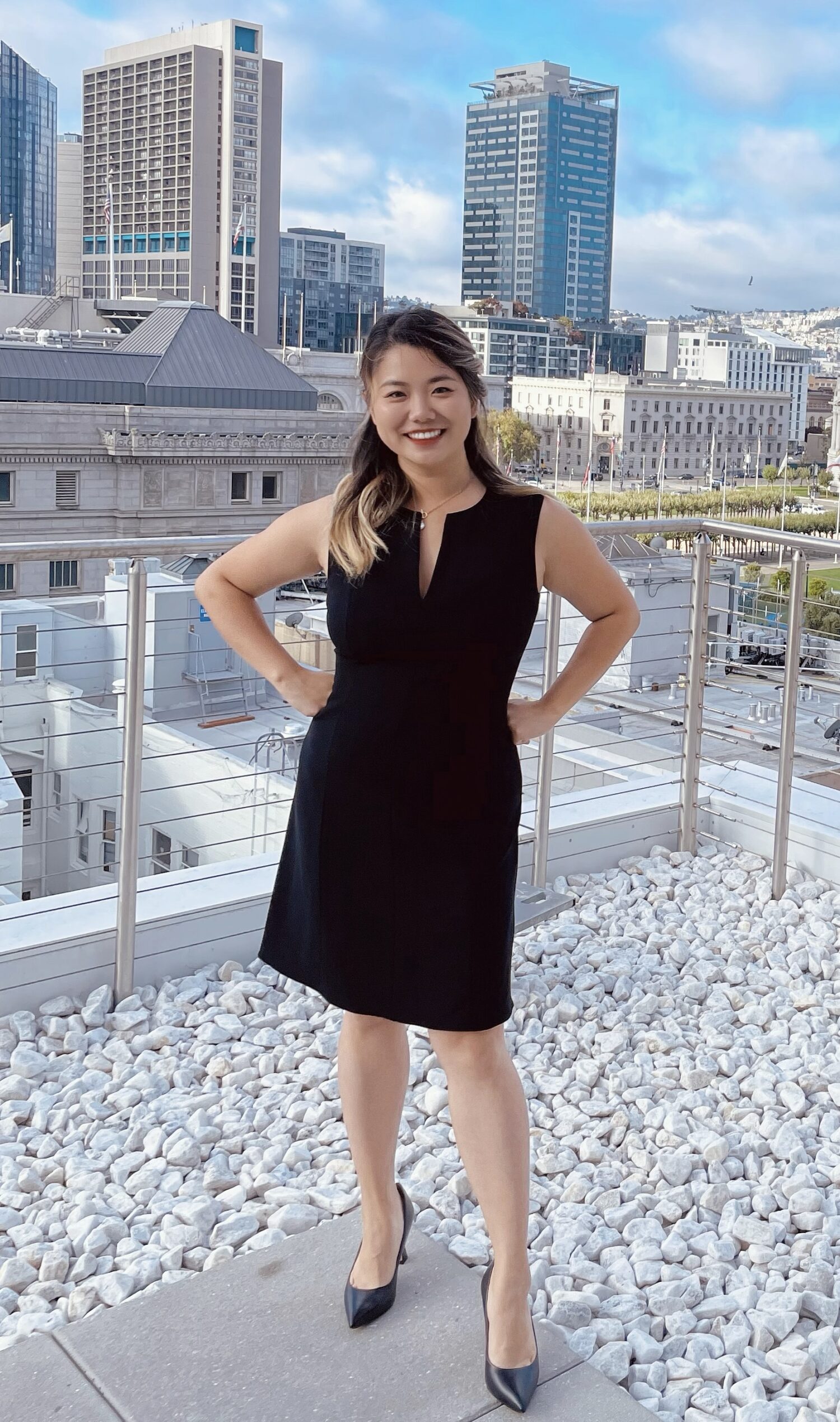Fellowship Allows Law Student Emily Taing '25 to Help FTC Stop Scammers

UC Law SF student Emily Taing ’25 won a prestigious fellowship to support her summer internship work with the FTC.
UC Law SF student Emily Taing ’25 was recently awarded a prestigious fellowship to support her work this summer helping the Federal Trade Commission (FTC) crack down on scams, deceptive marketing, unfair business practices, and anticompetitive conduct.
Awarded to one law student nationally each year, the Fred T. Korematsu Fellowship helps further the legacy of the civil rights pioneer who resisted Japanese American internment during World War II. The fellowship is made possible by a partnership between the National Asian Pacific American Bar Association and the Fred T. Korematsu Institute.
Taing talked more about the fellowship and her work with the FTC.
Q: What does it mean to you to have been awarded this fellowship?
A: Being selected as the 2023 Fred T. Korematsu Fellow is truly an honor; especially having majored in Asian American Studies in college to studying Korematsu v. United States and Trump v. Hawaii, which overturned Korematsu. I have the upmost respect and reverence for the Fred T. Korematsu Institute and its founding executive director, Dr. Karen Korematsu.
Q: Talk about the work you’re doing this summer.
A: During the spring semester, I worked with the FTC to create a consumer protection project focused on scammers targeting elderly populations and small businesses in marginalized communities. The project assesses a range of fraudulent practices, including the use of artificial intelligence for deception in sales, digital health platforms, and social media ads.
I research and synthesize relevant case law to support antitrust and consumer protection investigations. I also sit in on interviews with market players about potential mergers and acquisitions, held in collaboration with state attorneys general nationwide, and produce memos for active cases. Most recently, I have been attending the FTC v. Microsoft/Activision Blizzard hearing in the U.S. District Court for the Northern District of California with colleagues to assess the progress of the federal court hearing.
Q: Why is this work important?
A: From a broad perspective, I think the enforcement of federal consumer protection laws to prevent fraud, deception and unfair business practice and methods of competition is valuable. Specifically, to my background in ethnic studies and economic justice, I believe the FTC’s work is important because advancing racial equity by addressing consumer issues affecting marginalized communities is vital and necessary. Reports to the FTC and research have shown that people in majority Black communities are disproportionately harmed by fraud and other consumer problems. Racial discrimination has led to structural barriers to accessing credit, housing, and income-generating opportunities. Elderly and Non-English-speaking communities are adversely affected by predatory lending, phony money-making opportunities, etc. While community organizing and social movements address these issues, I think it is necessary for systemic change and progression from a federal regulatory level. This work can also help advance racial equity and economic equality.
Q: How will this further your career goals?
A: My time at the FTC will provide for a strong foundation for further professional endeavors in racial and economic justice. I am able to see how cases are built and executed from an antitrust as well as a consumer protection perspective, which I find immensely valuable.
More about Taing
A Bay Area native, Taing grew up helping her parents run a family-owned donut shop in Santa Clara. She earned a bachelor’s degree in International Development Studies and Asian American Studies from UCLA and master’s degree in American Studies from the Center for the Study of Ethnicity and Race at Columbia University.